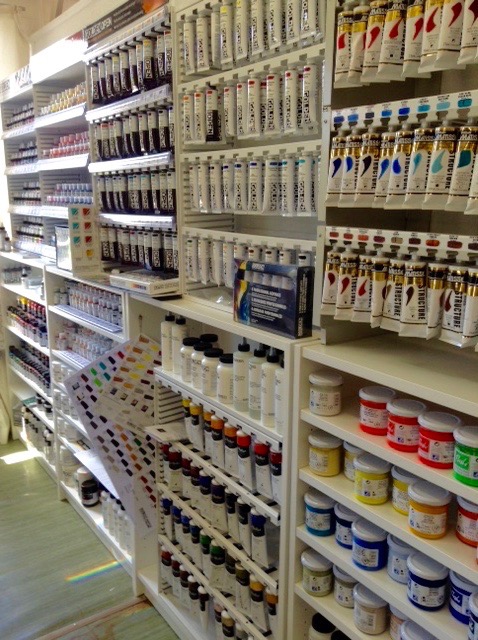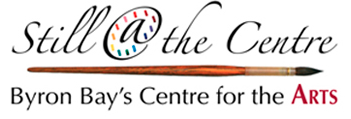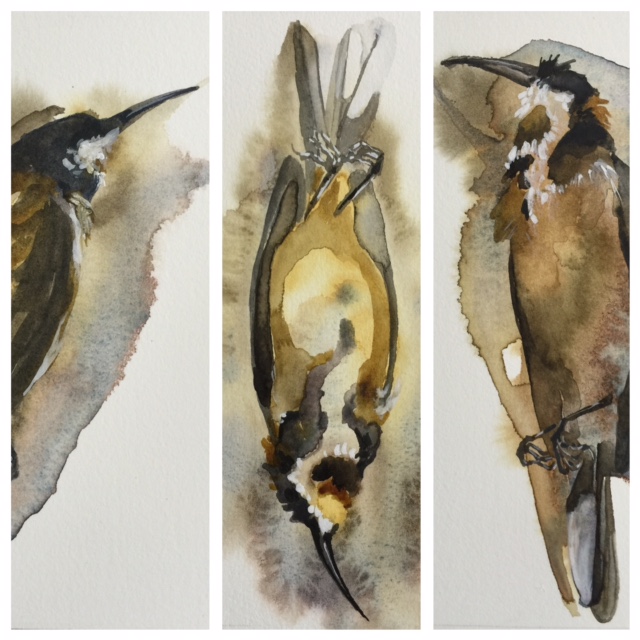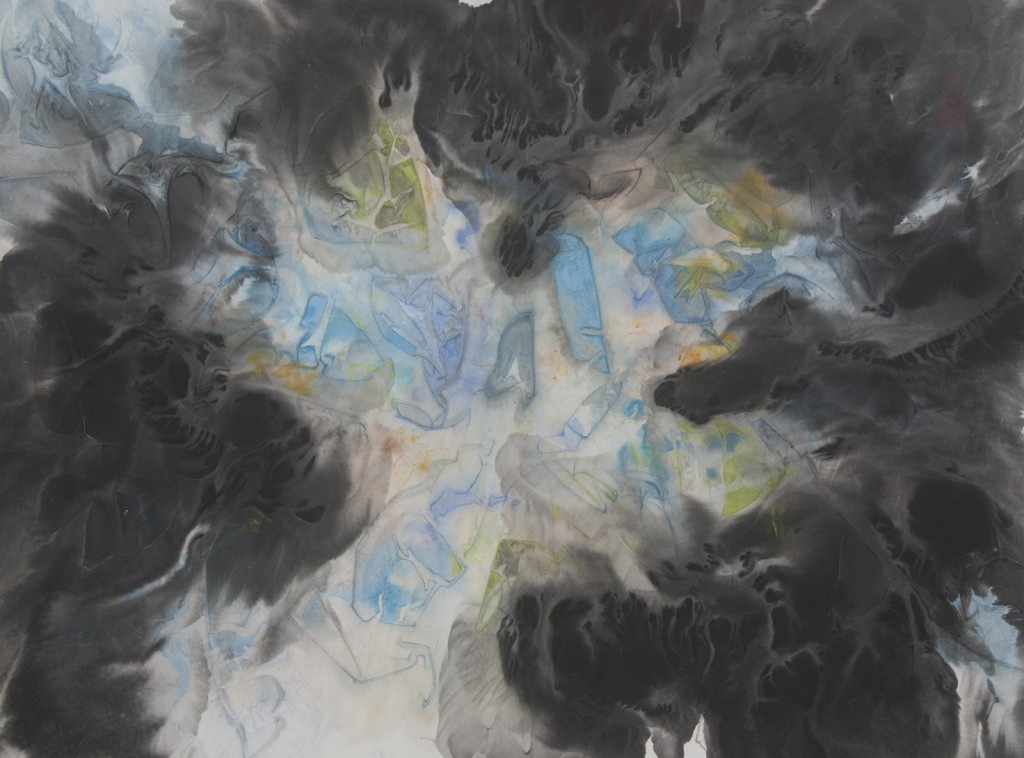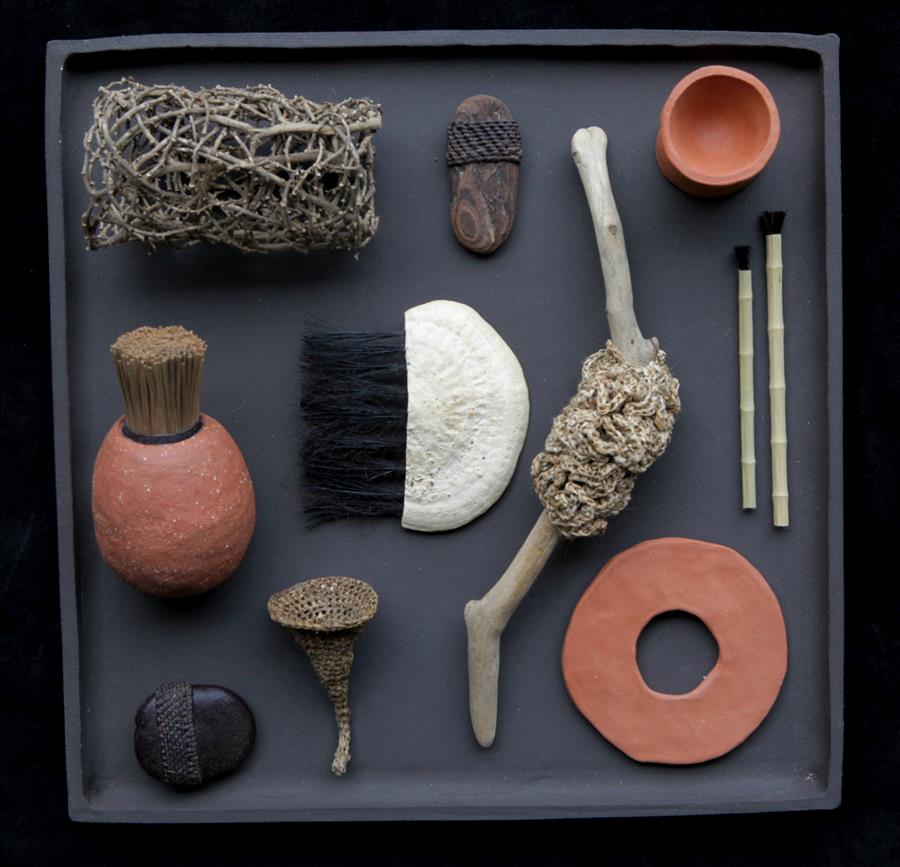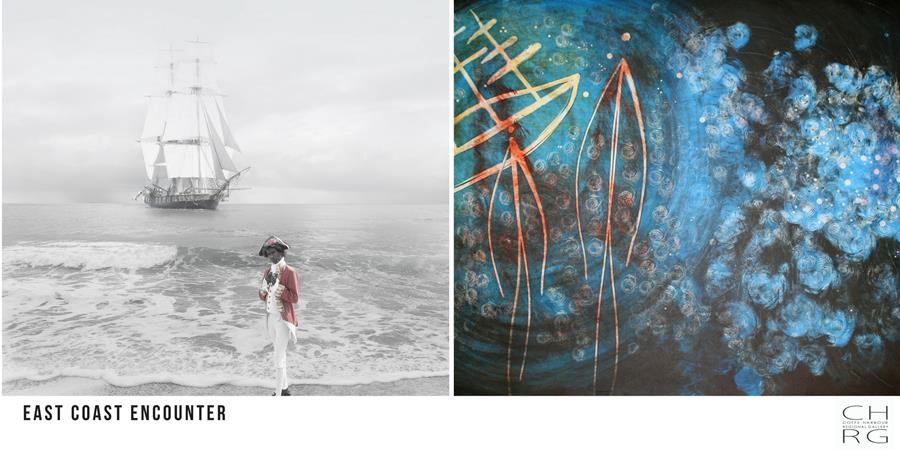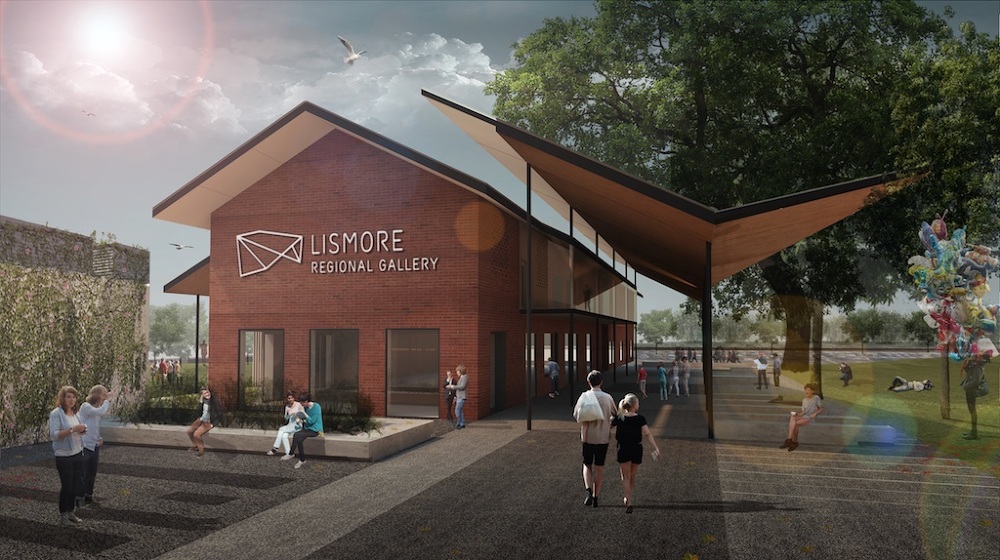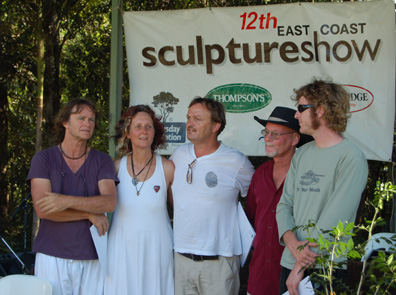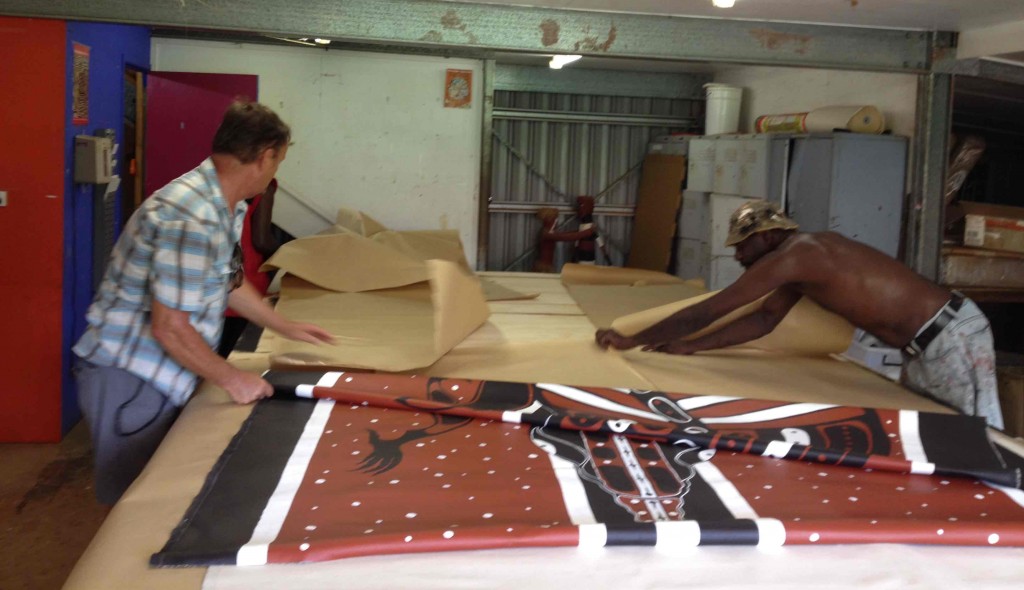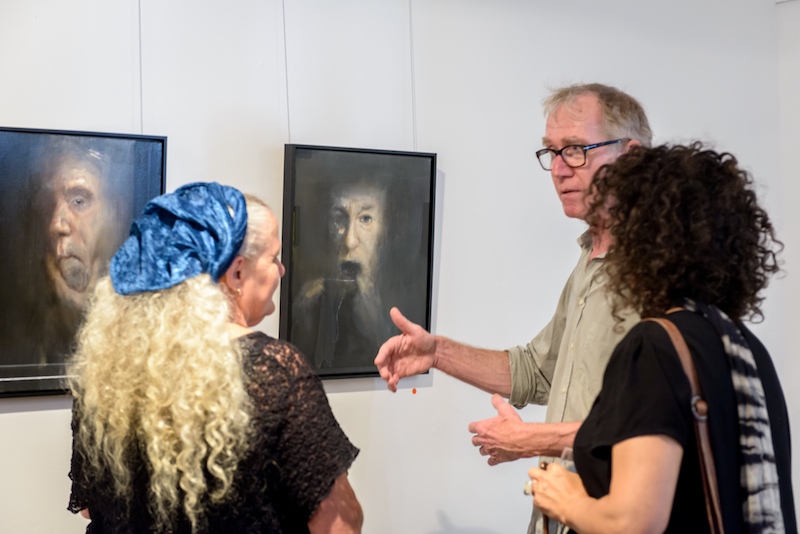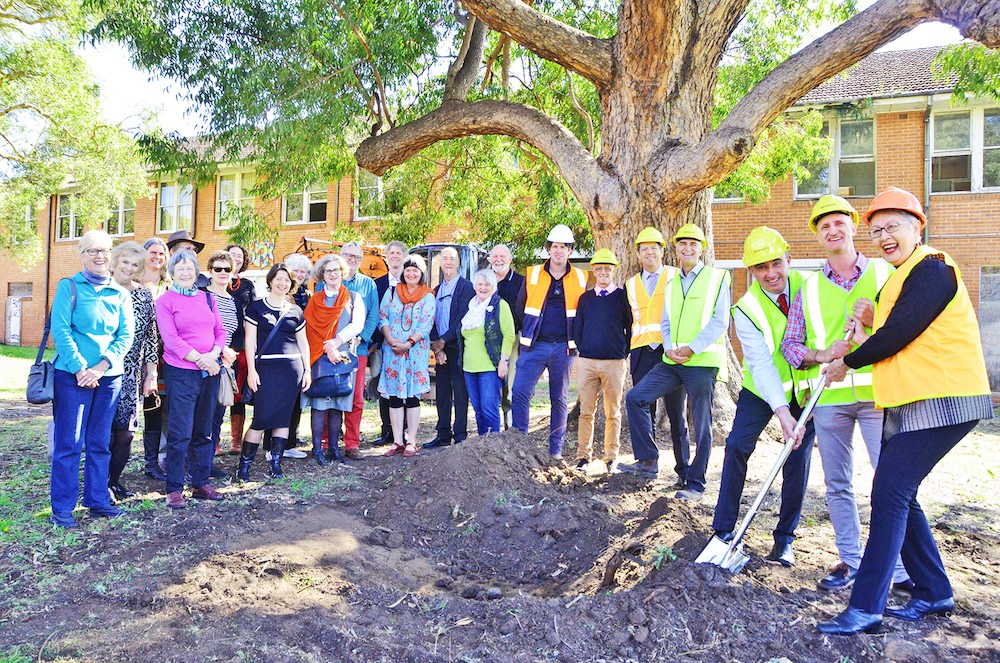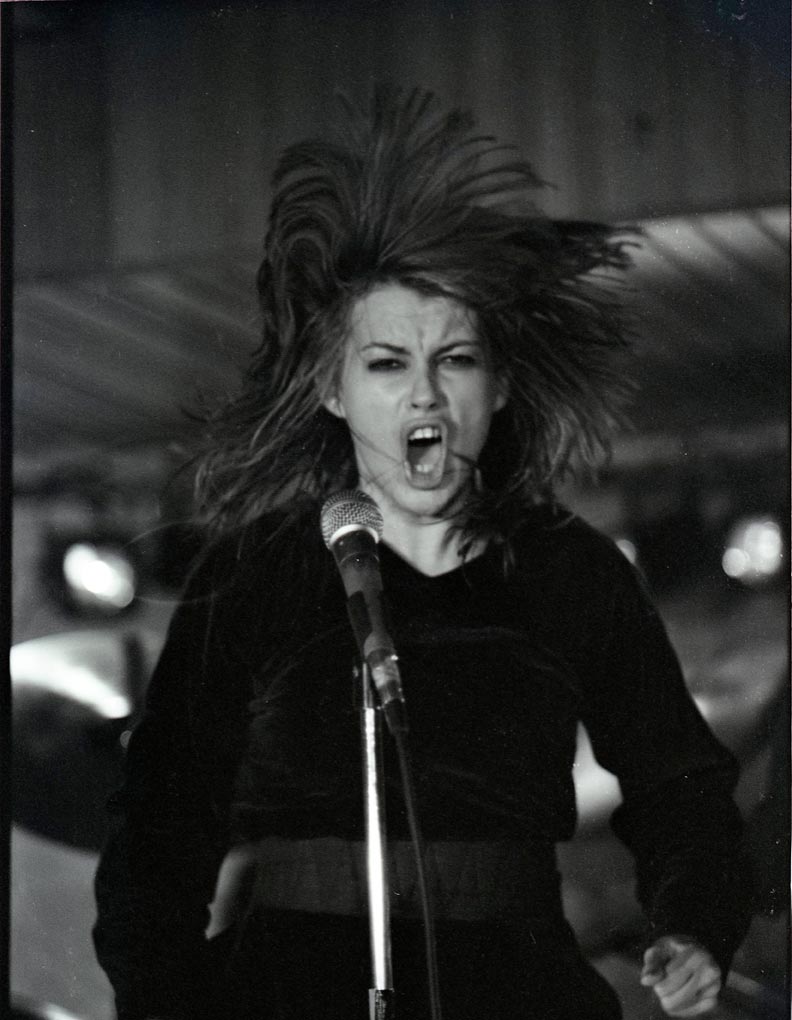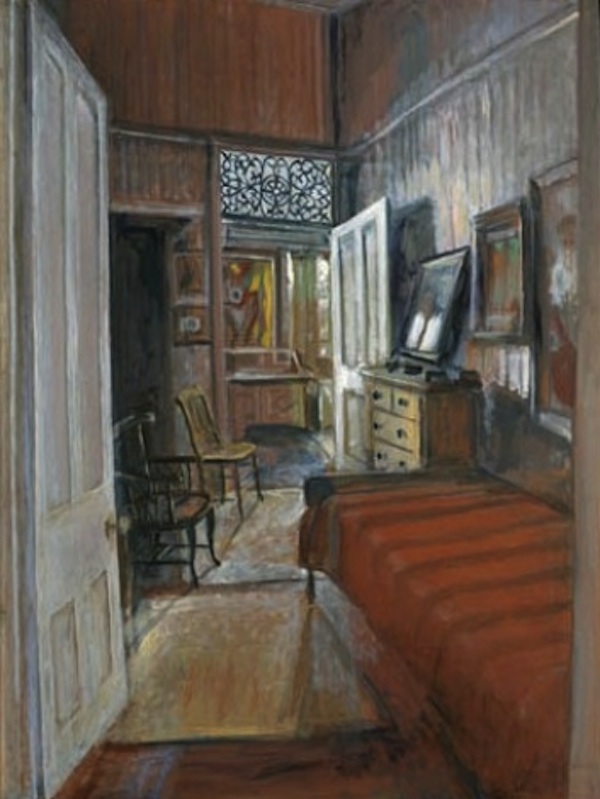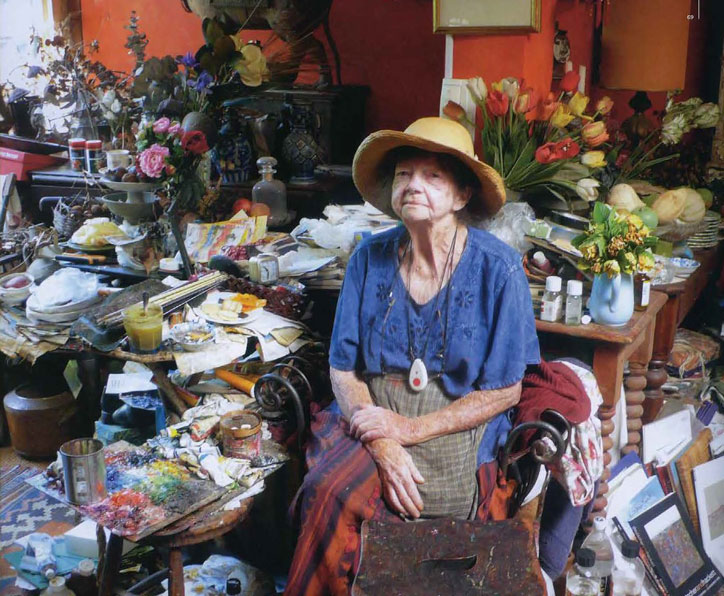The post A Little Bit of Arty Mullum Magic appeared first on .
]]>The Depot (previously the Telstra depot) has just been given an inside face lift and a new lease of life…opening its doors to the public as a space to rent and share with Keramika –Tali Cohen-Flantz’s ceramic studio and gallery– and Still @ the centre, Byron’s centre for the Arts, branching out there Mullum-style in the cutest little art store ever.
In the Depot’s common space Tali will be offering ceramic classes for adults and younger happy hands, while Still @ the centre will hold art materials demos and workshops…but that space could also be yours.
If you have an interest in a lovely, clean and light filled large room with all the conveniences (+ outdoor seating) in which to carry out your classes/workshops/meetings with parking in the centre of Mullumbimby, please get in contact soon with Tali for more information (phone: 04 03 663 284 / email: [email protected])
3 Centennial circuit | Arts & Industry Estate | Byron Bay
Monday to Friday 9.30am to 5.30pm
Saturday 9.30am to 3.30pm
Enquiries 02 6685 5808 www.the-centre.com.au
<https://www.the-centre.com.au/>
The post A Little Bit of Arty Mullum Magic appeared first on .
]]>The post Absence and presence and the space between appeared first on .
]]>For Jenni Catt, meditating on the life force while she paints loosely – almost ritualistically – in watercolours, opens up questions of absence, presence and the soul of animals.
For Angela Tay, it is the way ebbing tides surge and retreat, creating ever-changing dramas. Experimenting with ink and watercolours on tissue-thin paper, along with video and paper sculpture, her work is as unpredictable as what we experience on the beach.
John Bennett, Jenni Catt and Angela Tay are on show at the Coffs Harbour Regional Gallery from 7 July – 12 August 2017: coffsharbour.regional-gallery
The post Absence and presence and the space between appeared first on .
]]>The post Past, present and future at the Coffs Harbour Regional Gallery appeared first on .
]]>The still life genre was proposed for the Coffs Harbour Regional Gallery in 2007 as there was no pre-existing art award in Australia with this subject. Ten years later the EMSLA remains the only award for the still life genre in Australia and attracts entries from all around the country from artists in all stages of their careers. Building on the foundation established by the Gallery in 2007 with the support of Sydney based business man and sponsor, Dr. Mal Eutick, the Eutick Memorial Still Life Award has established Coffs Harbour Regional Gallery as the home of the still life genre.
The still life award has become a signature event in the cultural calendar of the Coffs Harbour region and has a wide ranging audience demographic from curious community members to avid art lovers. Now, the gallery is set to raise the Still Life bar even higher. The National Still Life Award will become a biennial exhibition from 2019, alternating with Grafton Regional Gallery’s JADA (Jacaranda Acquisitive Drawing Award).
The next still life award exhibition is on between 24 November 2017 – 20 January 2018.
East Coast Encounter
East Coast Encounter is a multi-arts exhibition involving Australian Indigenous and non-Indigenous artists, writers and songwriters to re-imagine the encounter by Lt James Cook and his crew with Aboriginal people in 1770. East Coast Encounter has had over 78,000 visitors across Australia’s East Coast since its inception in 2014. Coffs Harbour is its final showing before it returns home to the Australian National Maritime Museum.
East Coast Encounter will be opened by Donna Carstens, Indigenous Programs Manager, Australian National Maritime Museum.
This is a FREE event. However bookings are recommended.
Exhibition Opening Night
Friday 28 April, 6 – 8pm
Enjoy light refreshments
Join the Friends of the Gallery for an informative curator’s tour of East Coast Encounter, a multi-arts initiative re-imagining Lt James Cook’s first encounter with Australia’s Aboriginal people.
The Curator’s Private Tour with co-curator, John Waldron
Thursday 27 April 2017
5.30pm for 6.00pm start
This is a FREE event. However bookings are ESSENTIAL.
Reserve your ticket now.
Not So Solitary
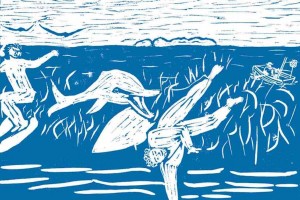
On now until 24 June
Coffs Harbour Regional Museum
Poetry, music and linocuts inspired by memories of the place now known as the Solitary Islands Marine Park. Together with historical photographs and artefacts, this exhibition draws on an extensive oral history project by the NSW Department of Primary Industries with Aboriginal knowledge holders, commercial and recreational fishers, tourism operators, divers, marine scientists, surfers and more. Explore the rich heritage of this special place where warm tropical waters meet and mix with cooler currents from the south, bringing species, people and ideas together.
For more information on Coffs Harbour Regional Gallery go to: https://www.coffsharbour.nsw.gov.au/gallery
The post Past, present and future at the Coffs Harbour Regional Gallery appeared first on .
]]>The post Brett Adlington: Saying goodbye for art’s sake… appeared first on .
]]>It was with a mixture of sadness, nostalgia and excitement, a crowd gathered to bid farewell to a space that has captured the minds and imaginations of visitors for decades.
To mark this, we asked our visitors to share their thoughts and memories of this gallery, which we have been sharing on social media via #lrgmemories
While we have been closed to the public, work continues frantically behind closed doors. Our extensive library has been pulled from the shelves, with decade’s worth of items being sorted into a multitude of piles. When we move, this library will be available to visitors to view, along with a searchable catalogue of items for the very first time.
The other big job is assessing our permanent collection. The Gallery has close to 1,000 works in its permanent collection. The layout of the old gallery means that staff can not properly access works in the collection while we were open to the public. So it really only left Mondays as a day in which were able to pull all the works out from our collection store and to place through our upper story so that we could then access the painting racks or plan drawers.
Being closed to public is allowing us to pull everything out from storage, do a condition check, photograph it, and document it on the collection database. This is a slow and methodical job, but one we only really get one opportunity to do properly before we move to the new building, sometime around June. We then expect to open to the public in September.
For those that have been in to the Lismore CBD lately, they would have noticed dramatic changes at our new home. The bulk of the exterior work (apart from landscaping) is now close to completion. On the northern side of the building you will see an extension to the original C Block, containing storage, loading dock, toilets, lifts and stairs, corridors, and a large undercover event space. The southern side, facing the Lismore Library and newly created Lismore Quadrangle, has a large external awning, and a second level glass corridor that links gallery spaces, and has views across the Quad.
Inside the building is also quickly taking shape; with ceilings, wall finishes and glazing giving a very clear picture of what we will soon be working with. People keep saying to me – “You won’t know yourselves” – when we are in the building. And as the reality of this project is more and more sinking in, I’m really beginning to feel the truth in that statement.
The post Brett Adlington: Saying goodbye for art’s sake… appeared first on .
]]>The post Around the world in 80 ways… appeared first on .
]]>When curator and artist Dev Lengjel first arrived in the Byron region in the mid eighties, he wasn’t, he’s the first to admit, an arts expert. “I could tell a Picasso from a Pollock,” he says, laughing, “and I was an art appreciator, but that’s as far as it went.”
We’re sitting under a tree on a warm summer’s day talking about Lengjel’s interesting route to his latest job as manager of the Goldfields Kalgoorlie arts centre, which comes complete with its own 700-seat theatre.
His induction into the art world was not exactly conventional. As part of the Sanyassin movement (followers of the guru https://www.acheterviagrafr24.com/acheter-viagra-sans-ordonnance/ Osho), Lengjel, like many other devotees, spent large amounts of time at the ashram in Poona, India, and it was there that his creative spirit unleashed itself.
“The ashram had a big creative arts department,” he says. “I started working backstage and that led me into doing variety shows. I would think up themes, and create shows around certain subject matter such as rickshaws and dreams – in the end I’d directed seven of them, and they included anything up to 15 individual performances.”
His favourite show came about in a deep meditation. “I was actually at another ashram, and it was extremely hot there, and while I was meditating I was thinking to myself that it was so hot all I wanted to was to push an iceberg into a swimming pool,” he says. “I went back to the head of the creative arts department, and she wanted to know why I wanted to do this particular thing, so I went away and gave it some thought, and realised that the ice represented the ego and the water represented the ‘self’, and the ice melting into the water was a symbol of what we’re all looking for – to dissolve the ego into the liquid pool of the self.”
As well as performance art, Lengjel, who had always been a keen dancer, choreographed dances, worked with installation artists, and met arts people from all over the world.
Lengjel’s background wasn’t an obvious one for a budding arts person. His father was a fitter and turner, and his mother worked in sales in haberdashery. “I was born in Hamburg,” he says, “and we lived there until I was sixteen when we moved to Brisbane in 1974. I have a brother and a half-sister, and my brother came with us, but after a few years the family returned to Germany. My father had been unwell and couldn’t work, and my brother really never settled, but I’d discovered the delights of being a young man unfetered by conventions and I really didn’t want to go.”
Lengjel was in New Zealand at the tme, partying and working hard when he got a birthday card from his mother which simply said Happy Birthday. “I turned it over and there was a message from her telling me that they were going back to Germany and would love to see me, so I headed back to Brisbane and set about drinking all the savings I’d made working in New Zealand. I said to them that if I had the money I’d love to go with them, without really thinking that Dad would offer me the money – but he did, and so I went with them. The only problem was it was a one-way ticket, so I stayed there two months until I’d saved the fare back here, and came back on my own.”
Lengjel’s travels set him up early for his peripatetic lifestyle. As his interest in art began to unfold into a career for him as a curator and artist, and he concurrently undertook a posgraduate degree in museum studies and cultural heritage through Deakin University, his increasingly varied jobs included being invited by founding curator Priya Woolston to clean signs which eventually led to co-curating the Sculpture Show at the Northern Rivers Thursday Plantation, initiating with Priya Woolston and curating the sculpture show at the Byron Bay Writers’ Festival, as well as co-ordinating the installation of two Artscapes and co-curating seven Swell Sculpture Festivals.
“I’d had a great run in the Northern Rivers,” says Lengjel, “but then life changed around in a big way when I decided it was time for a change and I went to work as an arts activity in a refugee centre in Weipa, and then I managed the Wik and Kugu arts centre on the Cape at Aurukun, which was an amazing experience.” That stint led to a job in Thailand working as a co-director of an arts residency in Chiang Mai, which was followed by some months in Berlin.
“After my time in Berlin I came back to Australia, and I was very keen to work again in the Indigenous art industry, so I started to apply for jobs, and I was delighted when the Kalgoorlie job came up,” he says. “I believe that it will be a great opportunity to put all the lessons I’ve learned about community engagement into practice. My vision is to create an arts centre that is accessible to every part of the community – particularly those groups that perhaps haven’t been engaged – school kids, the Indigenous population, the elderly.”
One thing that Lengjel has never been afraid to is to create confronting work. “I enjoy creating, or being involved with works that make a strong statement, or to take audiences on a journey of strong emotions,” he says, “but in the end I like to leave audiences with laughter. My experience has been if you finish the show with laughter the depth of the show will remain.”
He’s also someone who learned at an early age to trust his own artistic judgement. “My very first outing as an artist was at school when we all had to draw a house, and I put a window right next to the corner of my house. My teacher chastised me severely and told me I couldn’t do that. I was really deflated and humiliated – even as a child I wanted a house with a window on the corner. Then one day we went on a school excursion and we were walking through a suburb full of very wealthy houses, and we walked past a house which exactly had the window I’d drawn. I showed the teacher the house, and I remember even to this day this feeling of satisfaction that I was right – such a thing could exist.”
Dev Lengjel takes up his position of Manager of the Goldfields Kalgoorlie Arts Centre on January 19.
The post Around the world in 80 ways… appeared first on .
]]>The post Lismore Gallery – the final before the future… appeared first on .
]]>This time last year, I’d not long heard the news that funding was successful to construct a new gallery for Lismore. It’s been a mammoth 12 months getting to where we are now. In that time we’ve been blessed with amazing support; seeing $110,000 in donations to the project from the local community; a $500,000 donation from the Margaret Olley Art Trust; and additional funding of $300,000 from the state government to support gallery display infrastructure.
There was then all the finalising of architectural plans and development applications. Building commenced mid-year, and construction has been going according to plan (thanks to some unseasonably dry weather). The architect Dominic Finlay-Jones, and Bennett Constructions, have been fantastic to work with, completely understanding the needs of the Gallery. Today, when I stand onsite, I can see new roofing going on the building and structural steel indicating where the external awning and glass walkway will be going.
The Gallery team have also been very busy planning our programs for when we move, identifying and sourcing fitout needs and getting a grip of running a much larger space!
But perhaps for me, the most momentous moment was recently celebrating our final opening in our current building. To see such a diverse range of people, including so many artists who have been part of or program the last 6 years or so, was an incredibly gratifying feeling.
So what’s next? On February 4th, we’ll be closing the doors one last time. We’ll be inviting people in that day for a final chance to say goodbye, to share a drink and memories of this building that has served the community for so long.
Then, we will be doing an exhaustive audit of the permanent collection (numbering some 1,000 objects) and preparing our move. We’ll still be presenting some regular Peggy Popart sessions offsite, and will be collaborating with RealArtWorks and the Lismore Lantern Parade.
The plan then is to move in to the new facility in June, which includes placing the collections in their new storage locations and installing our opening round of exhibitions (in 4 times the amount of space we currently have). We expect then to open to the public in September 2017.
I’ve been actively sharing progress on Instagram and Facebook, so if you want see what’s going on, look us up!
In the meantime, we have our final round of exhibitions showing here, including stunning painting and drawing by René Bolten, screenprints and drawings by Nathan Gooley, a fun and colourful exhibition, Playroom, by Masato Takasaka and Madeline Kidd, and work by local Bundjalung artist, Adrian Cameron.
Lismore City Council acknowledges the people of the Bundjalung nation, traditional custodians of the land on which we work.
MAKE A TAX DEDUCTIBLE CONTRIBUTION FOR THE GALLERY <https://www.lismoregallery.org/cp_themes/default/page.asp?p=DOC-NBY-13-07-68> RELOCATION
Showing 10 December 2016 – 4 February 2017:
Paintings and drawings: René Bolten
Playroom: Masato Takasaka & Madeline Kidd
Superheroes & Monsters: Nathan Gooley
Widjabul Dreaming: Adrian Cameron
The Gallery will close from 4 February 2017 until September 2017 while we prepare to move to our new gallery
FOLLOW US
<https://www.facebook.com/LismoreRegionalGallery> <https://twitter.com/LismoreGallery> <https://www.lismoregallery.org/> <https://instagram.com/LismoreRegionalGallery>
The post Lismore Gallery – the final before the future… appeared first on .
]]>The post Three exhibitions of form and feeling appeared first on .
]]>I’ve been pretty focused on architecture these last few months. Of course, building of the new gallery gathers pace, and we are now past the demolition phase of the redevelopment – and in to the construction stage. Weekly site meetings with the architects, builders and project manager have been a pretty interesting process to go through, and I’ve been amazed how quick progress has been to date. Two big recent events on the Quadrangle site by RealArtWorks and the Northern Rivers Conservatorium (to celebrate their 25th Anniversary), gave a perfect sense of what the new site could be.
Meanwhile, in the gallery, we are hosting three distinct exhibitions which all reference architecture in different ways.
Of course the most obvious is the work of Lucien Hervé. The exhibition, When do we cast off for happiness? has been curated for Lismore Regional Gallery by Pierre Chevalier, who knew Hervé, and is still in contact with his Paris-based widow.
Hervé was active in the French-Hungarian union movement in the 1930s, was a member of the Communist Party, and became a war photographer in the Second World War. From 1950, for 16 years, he became Le Corbusier’s principal photographer – with Le Corbusier declaring upon seeing Herve’s work: ‘You have the soul of an architect’.
With Le Corbusier seen at the time as being one of the giants of Twentieth Century architecture, other notable architects also desired Herve’s photographic eye over their buildings. The exhibition also features images of Brazilian architect Oscar Niemeyer. These images document the building of Brasilia, an austere looking capital city built in the 1950s. Herve’s way of working; cutting images, concentrating on sharp, angular lines, and light and shadow – are in sympathy with Niemeyer’s work.
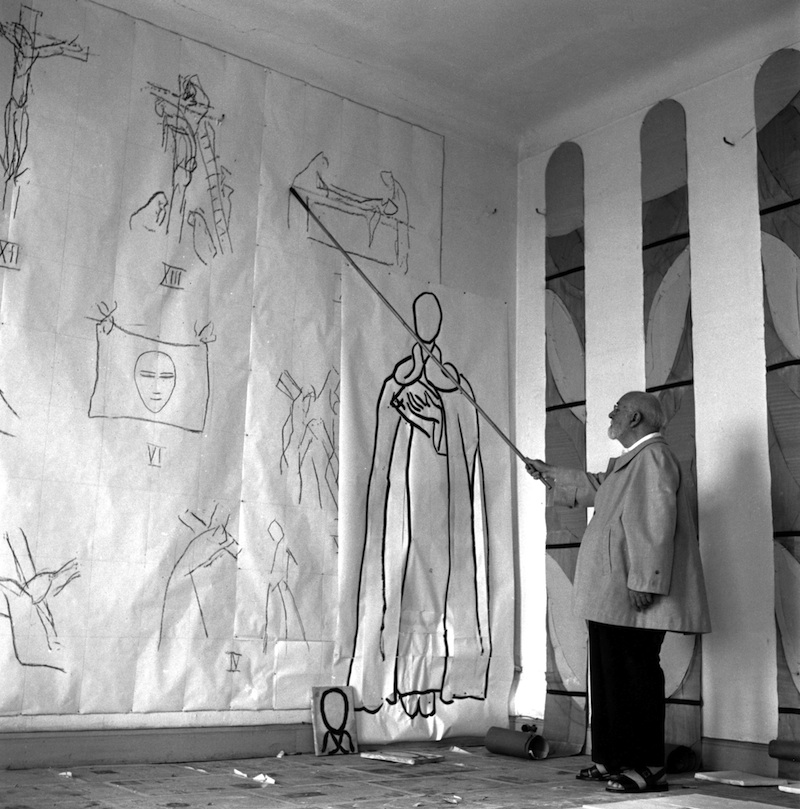
Lucien Hervé: Henri Matisse, painter and sculptor, Hotel Regina, Nice, 1949
Reproduced with kind permission © Lucien Hervé.
The exhibition also includes work documenting another creative giant of the Twentieth Century, Henri Matisse. Pere Couturier, who introduced Hervé to Le Corbusier, also introduced him to Matisse. Photographs depict Matisse working on a number of mural works in situ, and illustrate the capacity of this great painter in continuing to work large scape while his mobility was being reduced.
Showing alongside the work of Lucien Hervé is Sydney artist Kenzee Patterson. Like Oscar Niemeyer, Patterson’s sculptural work is bare and minimal, but with layers of complexity. Patterson came to us as he was exploring the idea of two family relatives. One who was known to have been involved in the construction of the bel tower of the Lismore Post Office, and the other, a red cedar logger. The bell tower has an intricate wrought iron canopy, the medium in which Patterson has worked in for a number of years.
The exhibition, A tree branches, so does a river, references these two familial stories, in a series of sculptures that bring to mind the bell tower, and the chemical structure of the pheromones of the red-tipped cedar moth.
Finally, showing upstairs is Svea Bjornsson, winner of the 2015 Lismore Regional Gallery Graduate Award for a graduating student from Southern Cross University. Her work, while exploring the history of the alphabet, and its sounds, also has an architectural manner in the installations construction. Colour and form are important elements in this joyous and playful work.
All exhibitions at Lismore Regional Gallery run until 3 December.
The post Three exhibitions of form and feeling appeared first on .
]]>The post Geoff Hannah’s magical woodworking & the Gallery begins… appeared first on .
]]>The Gallery has been heaving the last few weeks, as we fall under spell of local celebrity Geoff Hannah. If the name doesn’t ring a bell, Hannah is a Lismore-based woodworker – though ‘woodworker’ seems to underplay his extraordinary ability.
Geoff creates amazing cabinets from a multitude of timbers, stone and inlays. They are full of complexity, with hidden draws and secret compartments. The Chinoiserie Cabinet, (currently on display) took three years to complete, while his previous Hannah Cabinet took six years to finish. The latter is hoped to be brought home to Lismore permanently in the new Lismore Regional Gallery. Some of Geoff’s other major cabinets are located in the Governor General’s residence in Yarralumla and in private collections internationally.
Geoff started his trade at Lismore-based woodworking company, Brown & Jolly in 1963 before going out on his own. A tremendous shift in his career came in the mid-80s, when Hannah ceased working from commission. He chose to work instead on his own highly detailed and complex works that inspire nothing less than awe.
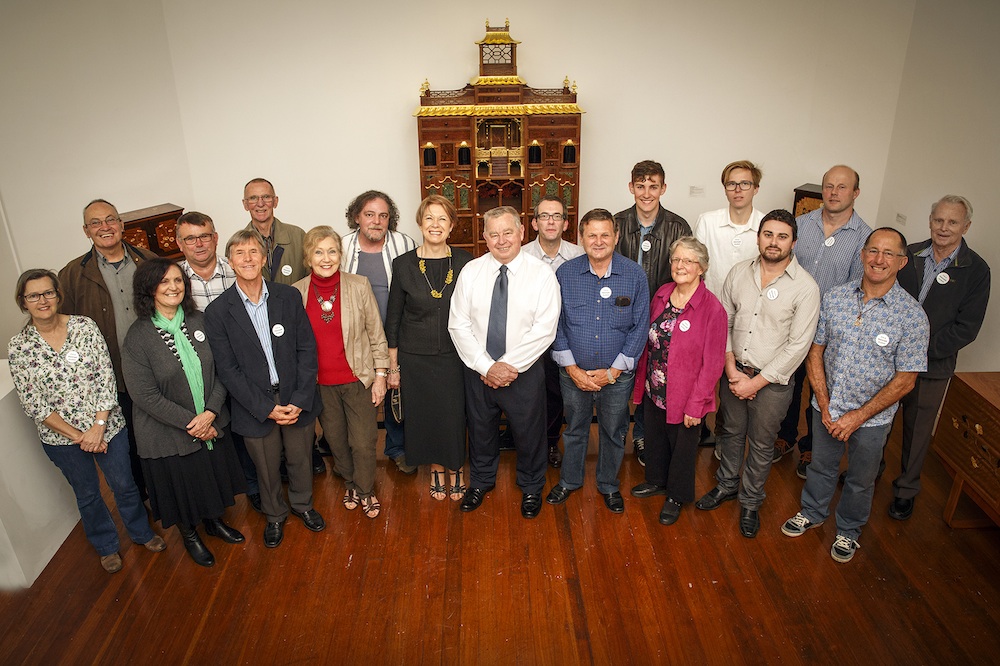
Geoff Hannah (centre) with the students, in front of his Chinoiserie Cabinet in LIsmore. Photo: Tree Faerie
In 1980 he was awarded a Churchill Fellowship which enabled him to research fine furniture from the period 1635-1850, while travelling throughout England and France. A condition of the Fellowship was that the recipient had to ensure their learnings were shared with people back in Australia. Geoff has taken this up with relish, teaching students across the country and from his home workshop in Lismore for the past 30 years.
The exhibition at the Gallery includes a range of works by his Lismore students, some of whom have been with him for the past 20 years. The exhibition also includes a 45 minute documentary commissioned by the Gallery, Secrets and Sawdust: a master and his students prepare, produced by David Lowe & Eve Jeffery from Cloudcatcher Media. This film takes us into Geoff’s classes to give us a sense of the trials and triumphs of working in wood. We also meet a number of his talented and devoted students as they prepare for a major exhibition.
Additionally, a biography, Geoffrey Hannah: Never a Less Likely Bloke, has been published by Meg Heggen, and tells the wider story of Hannah, and what has led him to this point. The popularity of this exhibition has highlighted the constraints of the current Gallery, with attendees at artist talks being unable to be accommodated by the building. But this won’t be for much longer.
On Wednesday 7th September the first sod was turned on construction of the new Lismore Regional Gallery and Lismore Quadrangle. It was particularly wonderful to share this with Member for Page, Kevin Hogan MP; Member Lismore, Thomas George MP; Mayor of Lismore Jenny Dowell; Gallery staff and Senior Council staff; project architect Dominic Finlay-Jones; Director of Bennet Constructions Darryl Piper and a big group of financial donors from the community along who have all been staunch advocates for this project. This was also one of Jenny Dowell’s final official engagements – so it was particularly fitting to share this moment with her.
Geoff Hannah & Students: In Glue and Dust we Trust – showing until Saturday September 24.
Students include: Colin Fardon, Barbara Riordan, Jan Page, Sue Egan, Ted Slattery, Jade Hughes, Lucille Stace, Rick Stewart, Sally Bates, Brian Emery, Darren Shaw, Rob Hurford, Brian Henry, John Whittaker, Greg Foster, Paul Armour, Francesco Stassi, Daniel Prentice, Gary Shallala-Hudson, Paul Laird, Wendy Laird, Paul Frangos and David Gilmore.
The post Geoff Hannah’s magical woodworking & the Gallery begins… appeared first on .
]]>The post It’s only rock and roll – but it’s been a life’s work for Tony Mott appeared first on .
]]>When Splendour Producer Jessica Ducrou opened What a life! Rock Photography by Tony Mott for us on the 10th of June, like many in the room, she spoke of Tony’s incredible warmth, and how he had become a bit of a personality in his own right.
I recall living in Sydney in the late 1980s and early 90s when Tony’s name seemed to be credited with every rock image published. The free street music papers, On the Street and Drum Media were vital means to organise your social life – particularly in the pre-social media world. So Tony’s images played a role in visualising that important part of Sydney’s live music scene.
For me, this exhibition is a bit of a roll call of bands that bring back fond memories of that time. Bands such as Falling Joys, Box The Jesuit, The Hummingbirds, The Celibate Rifles and the Psychotic Turnbuckles among many, many others. These bands graced the stages of places such as the Hopetoun, the Annandale Hotel, the Trade Union Club, and the Sandringham Hotel. For those that lived in Sydney at the time, I’m sure these names nostalgically take you back.
While Mott was a strong advocate for emerging Australian bands, he also documented some of the biggest names in music – Björk, Madonna, Michael Jackson, KISS, AC/DC, Kanye West and the Rolling Stones.
Mott credits Chrissy Amphlett as being the artist who gave him his first break. He initially thought she’d be impossible to photograph, but over a period of 5 months, he used her as his ‘muse’ to perfect the art of rock photography. When one of these images was used to promote her band, Divinyls, his career took off.
Tony’s photographs have appeared in more than 700 music magazines and street press journals including Rolling Stone, Juice, Drum Media, RAM and Juke. He has provided photography for more than 450 singles, EPs and albums.
What a Life! Rock photography by Tony Mott is touring from the State Library of NSW, where it was a massive hit over the Sydney summer. The last few weeks in Lismore have indicated it will be a huge hit here as well!
What a Life! Rock photography by Tony Mott is on at the Lismore Regional Gallery until August 12. For more info go to: lismoregallery
The post It’s only rock and roll – but it’s been a life’s work for Tony Mott appeared first on .
]]>The post Margaret Olley Arts Trust donation for Lismore appeared first on .
]]>The news this week that the Margaret Olley Arts Trust will be contributing $500,000 towards the redevelopment of Lismore Regional Gallery not only highlights the late artist’s ongoing commitment to Lismore, but also her commitment to regional galleries generally.
Philip Bacon, Executor of Margaret’s Estate, presented a cheque of $500,000 to Lismore Mayor Jenny Dowell on Friday, 18th March, at Lismore Regional Gallery. In recognition of the support of the Margret Olley Arts Trust, we will name the main gallery space in the new Lismore Regional Gallery ‘The Margaret Olley Gallery’.
Bacon said, that “This was a project very close to Margaret’s heart, going as it did to her love of, and belief in, the value of regional galleries to their communities, with of course the added attraction that Lismore was her birthplace.”
The Tweed Regional Gallery & Margaret Olley Arts Centre artgallery has been a boon for the area, and while we are not replicating what Tweed has so successfully achieved, we see that being part of this network of spaces supported by Olley (which includes the New England Regional Art Museum) neram.com.au will have fantastic benefits in the cultural tourism space. The contribution also cements this artist as one of the most philanthropic in the Australian art world.
Notwithstanding the fact that she was born here, Olley had a longstanding relationship with Lismore. She won the acquisitive Lismore Art Prize in 1958, and then, under the Directorship of Steven Alderton, supported the establishment of the Margaret Olley Arts Centre in Lismore from 2006.
While obviously disappointing at the time, the establishment of the Margaret Olley Arts Centre in Tweed was a chance for me to reconsider the Lismore project, and seek alternatives for a facility for Lismore.
The result is the Lismore Quadrangle development, a $5.8 million redevelopment in Keen Street, which includes a relocated Lismore Regional Gallery, café and bookshop, public piazza, and new car parking. The project gained certainty in December 2015 when $2.85m from the National Stronger Regions Fund was announced. This is due to open late 2017.
Mayor of Lismore, Jenny Dowell said of the gift: “Our community, like many artists and galleries that have been beneficiaries of Margaret’s generosity, is so grateful for her commitment to nurturing cultural life particularly in regional Australia. Margaret Olley will always hold a special place in Lismore’s heart and through this gift from her estate; she will have a presence in the heart of our city forever.”
For more information on the gallery go to: lismoregallery
The post Margaret Olley Arts Trust donation for Lismore appeared first on .
]]>